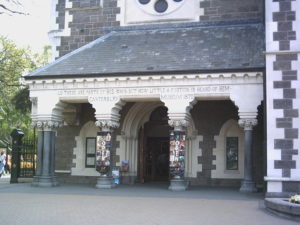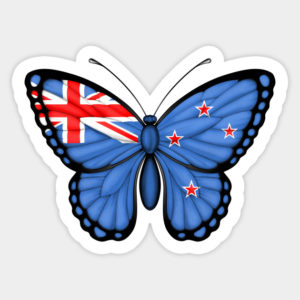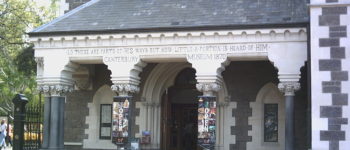What is English language really?
July 18, 2020
By AHNZ
 The history of New Zealanders and their culture is also the history of their language, English. It has come to my attention that ‘educators’ today have been telling their ‘students’ that “for white people being interested in the history of Aotearoa is a hobby, but for maori it is life or death.” Or, “unfortunately being pakeha we didn’t really have a culture or beliefs… ”
The history of New Zealanders and their culture is also the history of their language, English. It has come to my attention that ‘educators’ today have been telling their ‘students’ that “for white people being interested in the history of Aotearoa is a hobby, but for maori it is life or death.” Or, “unfortunately being pakeha we didn’t really have a culture or beliefs… ”
When I asked the two women who said those things for more information they quickly clammed up. I would have pointed them to Ancestors of the Mind and asked what they thought of that. I would like to know if these ideas about ‘pakeha’ are being transmitted within families or if it’s part of the Frankenstein’s Maori State program.
We only know a portion of the deep working machinery of what makes people and cultures tick and some parts of that are our language. New Zealand language, English, is being taken apart as an assault on that working machinery. In fact, part of the effort to eliminate New Zealand’s individuality is to deny and undermine there being such a thing as English Grammar at all. Even English plurals are assaulted...
“English doesn’t *need* to apply the Māori rules of pluralisation, there are just a sufficient number of speakers who have decided to do so that it’s now correct English.”- Comment to AHNZ
This is some flashy Orwellian Double Think. Firstly, standards are abandoned and instead of grammar and correctness we are muddled into thinking such things are too hard; An archaic fancy. All we can do, we are told, is catalogue and keep up with whatever is happening in the world of speech; Be descriptive not prescriptive. Then, secondly, the Sophist starts using ideas he just got you to stop using. He only had the pretence of not using those ideas so that you’d actually do it and be easy prey because now he starts using terms like ‘grammar’ and ‘correct’. He’ll instruct your children at school and the listeners to State media in this ‘right’ speak and when your university papers are graded you’ll marked down for saying “Maoris” and will not be able to say “But I was told there was no such thing as correct grammar?”
Having given up on language principles it just comes down to a fight between will power. The side that captures the state media and the state education system will force their narrative upon the population. That’s no organic language or moral victory, that’s just force.
“English is..a fusion of many languages. Inconsequentially, words from other ethnicities have been taken without permission,…”- Comment to AHNZ
Western Culture, including English, does not steal. It appreciates and absorbs. It recognises something good or better when it sees it and makes it part of the community. You’re judging by proxy of your terminology even if you don’t want to be honest enough to say it out loud. An act of “theft” is a crime with a perpetrator and a victim. You’re staying someone’s speech, culture, language, is stolen property. This is a mischaracterisation with consequences.
1. Define what English is, in regards to the people? Are you referring to the Saxon’s? French (Oxford Dictionary is an English language dictionary with words like chef, or chateau and then you got mechanic)? German’s?- Comment to AHNZ
Language is the medium in which we are conscious. Consciousness has degrees. We can be wide awake or sound asleep. We can be anesthetised. New Zealand English is special, as special and unique as her people. It’s mental furniture. People protest and fight one another over whose style of reproduction will work in New Zealand and I can certainly understand why. We also fight each other over whose style of free-expression, what consciousness, will be supported or undermined in New Zealand. What can you say, what can you think?That’s what’s at issue now. That’s what English is in regards to the people.
“2. Who do you refer to when quoting we? Are you referring to yourself and your colleagues (which would be considered rather self-serving perhaps)? Or the general public?”- Comment to AHNZ
 I’m speaking of the real and organic people of New Zealand, those of us who remain. Not the Frankenstein’s Maoris or the politicians. Not the State’s media or State’s teachers. Not people who are being paid money to supply culture. Not the Politically Correct, no the Corporations and their marketing departments. We are what has survived, what is left of the founding culture and what it has done and yet to do. We are the Lepidoptera Zealandia that have not been collected up and pinned in a Statist trophy case.
I’m speaking of the real and organic people of New Zealand, those of us who remain. Not the Frankenstein’s Maoris or the politicians. Not the State’s media or State’s teachers. Not people who are being paid money to supply culture. Not the Politically Correct, no the Corporations and their marketing departments. We are what has survived, what is left of the founding culture and what it has done and yet to do. We are the Lepidoptera Zealandia that have not been collected up and pinned in a Statist trophy case.
“3. If you are referring to the general public, assuming your referring to the era of DMS, email and chat, do we really speak anymore?–Comment to AHNZ
Yes we do speak, even though our English is being sanitised and homogenised. We are still conscious beings and we will still need a medium to be conscious within. Like a fish swimming, our consciousness can swim in clean waters with lots of dimensions and highways. Or, we can swim our minds into skanky swamps and dark polluted waters that restrict movement. Why would someone who loved to swim confine themselves to Direct Messaging and TXT and Twitter formats? For those of us who still want to be New Zealanders there must still be a language. To give this up is not only to give up our unique national identity but to give up participation in the fully awake, fully alive, human race.
4. Politically correct era? You know that Maori languages (yes, language’s – we have different dialects, jargon, colloquial words etc) schools existed during the eras in which the culture was suppressed and punished, and with kohanga reo emerging in the 80’s, followed by kura kaupapa in the 90’s, wharekura and whare wananga early 2000’s and to now we have Panekiretanga.- Comment to AHNZ
I’m glad to hear you pointing that out because, yes, there are, or were, Maori languages. Everything I’m saying about authentic English also applies to authentic Maori which is being threatened and Frankensteined catastrophically. The people who are doing this, the Politically Correct, think that they are helping. They think that help is a product that is handed out and if they do it they will be special. They don’t recognise that a culture and a language must stand for itself but are invested in it being dependent because otherwise they can’t save it and therefore cannot be special.
“Who are any of you lawyer’s, authors, historians or legislators to have an opinion at ALL about whether Maori should have an ‘s on the end as a plural when we have language schools that could decide that.”- Comment to AHNZ
In the New Zealand here defended, none of our professionals need to be licensed or permitted by The State to hold their own opinions about their own language. After all, it belongs to them and their people not to the Government. No State-sanctioned language school gets to control the content or the apparatus of free people. All Official People can do is to get out of the way and stop “helping.”
—
Image ref. Canterbury Museum; AHNZ Archives
Ref. Less than Words Can Say; Richard Mitchell (1979)
 Like Comment Share
Like Comment Share





